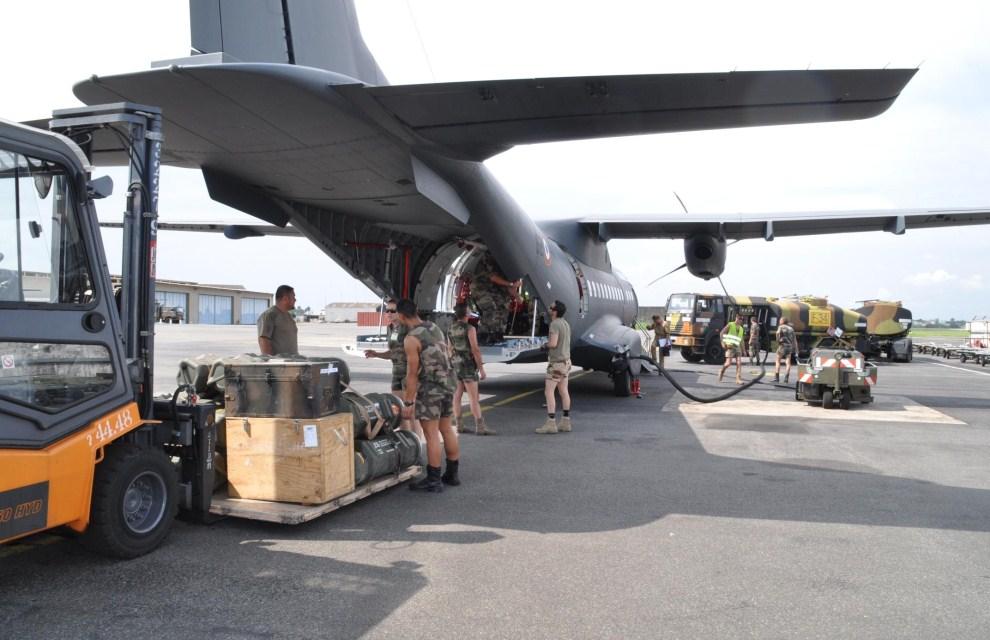Some countries could do more…
 (BRUSSELS2) Christophe Lacroix, PS deputy (French-speaking Belgian), spokesperson for the group on the Mali question, explained to B2 (*) his party's position on the Belgian military commitment in Mali.
(BRUSSELS2) Christophe Lacroix, PS deputy (French-speaking Belgian), spokesperson for the group on the Mali question, explained to B2 (*) his party's position on the Belgian military commitment in Mali.
A position which seems shared, more or less, by several groups in the Belgian parliament, according to our information: the liberals of the MR in particular but also to a certain extent by the Flemish Christian Democrats of the CD&V. The French-speaking Christian Democrats, through the voice of G. Dallemand, do not entirely agree, being in favor of a more marked commitment by Belgium. On the other side, the Flemish autonomists of the NVA being very reluctant.
The Belgian commitment in the European operation EUTM Mali requires an evaluation, what do you mean by that?
We are already involved in Operation Serval (French) with two helicopters and two C-130s. Any modification of this commitment requires an evaluation report on several levels: political, budgetary and military. Careful consideration must be given to the budgetary impact of any new commitment. How much does it cost ? Just like the rules of engagement on site. We must also examine the impact on other ongoing missions. We are already engaged in Benin, Uganda, Congo... Will we be able to maintain these commitments?
Can change happen quickly?
Yes. it is enough to have the evaluation report, a decision of the government and a debate in Parliament. It is up to the government to make a decision. And to come and explain it to Parliament. It can happen very quickly. It is enough that the government after a restricted council comes before the parliamentarians immediately. We can get together very quickly. We have done this before. (Nb: the authorization of the Belgian parliament is not necessary, except in the event of a declaration of war. But it is now a quasi-compulsory practice to come in the event of an external commitment to obtain the agreement of the Parliament).
Is it a fatigue of the European commitment?
No, it's the opposite. Our group tabled a resolution in the Chamber last May wishing to insert the future of the Belgian army into a European framework. And we hope that other groups (in the Belgian parliament) will join this resolution.
We nevertheless feel a certain reluctance at the Belgian level to a new commitment. Do you think Belgium is doing too much?
It doesn't always have to be the same countries that have to be mobilised. Today, the circle of proactive countries in operations is still the same. The Belgians have always been there. But other states can get involved. The United States has repeatedly sent signals to Europe, believing that we must take their defense in hand.
This is not the case ?
Not really. Currently we have the impression that there are speeches, at European level, but few commitments. Some countries need to come out of the woodwork and take up the torch.
We have the impression of recognizing Germany for example
Yes. But not only. Everyone must show their cards today. We can no longer play lying poker indefinitely.
(*) Interview conducted by telephone on Friday.
Excerpts from the resolution tabled by Anthony Dufrane
Even if the advent of a "European army" is not yet on the agenda, the common security and defense policy of the European Union (CSDP) provides that Member States can put civilian capabilities and soldiers at the disposal of the Union. This participation, on a voluntary basis, constitutes for the authors of this resolution a priority requiring an impetus which should lead to greater military cooperation in Europe. It is only on the basis of this Community military cooperation that the European Union will finally have an essential and sufficient basis for conducting a genuine European foreign policy.
(...) If, in the past, the predominant principle in matters of diplomacy and defense between European States was that of the "solo rider", this principle is now found to be overtaken by the facts: the European Union must ensure the coherence of its policies at international level beyond bilateral agreements concluded between its Member States.


